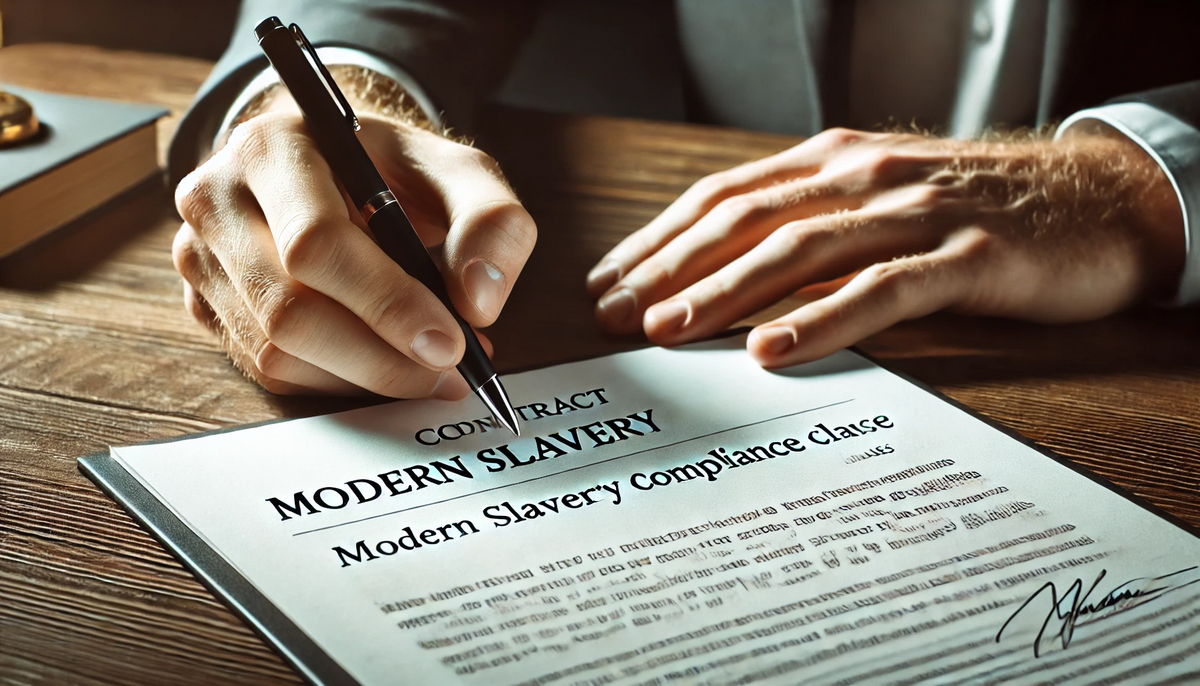
In today’s globalised world, businesses must pay closer attention to the ethical standards within their supply chains. The UK’s Modern Slavery Act 2015 has become a cornerstone of corporate social responsibility, pushing businesses to address human rights violations such as modern slavery and forced labour.
Under Section 54 of the Act, companies with an annual turnover of £36 million or more are required to publish a Modern Slavery Statement each year, detailing steps taken to ensure their operations and supply chains are free of exploitative practices.

Why Supply Chain Due Diligence Matters
Supply chain due diligence is the process of identifying, preventing, and addressing risks of human rights violations, including forced labour, trafficking, and modern slavery, within an organisation’s operations. For businesses, this involves a series of checks and balances to ensure they are not unintentionally supporting unethical practices through their suppliers.
Due diligence starts with understanding the company’s own operations and extends deep into the supply chain. Often, larger businesses have complex, multi-layered supply chains spanning different countries. With the risk of labour exploitation higher in certain regions or sectors, it becomes imperative that companies map and assess their supply chain risk areas thoroughly.

The Modern Slavery Act: Key Reporting Requirements
Under the Modern Slavery Act, organisations are expected to report annually on:
- Organisational Structure: How the business and its supply chains are structured, including the types of goods or services produced.
- Policies and Procedures: The company’s policies to combat modern slavery, such as human rights frameworks or worker protection clauses.
- Due Diligence Processes: Details on how the company monitors, audits, and evaluates its supply chain for risks of modern slavery.
- Risk Assessments: Any processes for assessing and mitigating risks in different parts of the supply chain, particularly in high-risk areas.
- Employee and Supplier Training: Programs that educate workers and suppliers on identifying and addressing modern slavery.
- Effectiveness Measures: How the company measures its success in eliminating modern slavery from its operations, through metrics or audits.

New Ethical Supply Chain Reporting Standards
New developments in ethical reporting have placed more emphasis on transparency. Businesses are expected not just to comply with minimal legal standards but to actively engage in identifying, reporting, and addressing ethical risks across their supply chains. This includes ethical audits, where companies are encouraged to conduct surprise visits and audits of suppliers to ensure compliance with human rights standards.
The proposed amendments to the Modern Slavery Act are expected to include mandatory reporting areas and potential fines for non-compliance. As ethical consumerism rises, failing to address these issues can significantly harm a company’s reputation and brand.

Best Practices for Businesses
To stay compliant and foster trust with consumers and stakeholders, businesses should:
- Conduct regular audits of their suppliers, ensuring ethical standards are met.
- Develop modern slavery clauses within contracts to ensure suppliers adhere to anti-slavery laws.
- Perform thorough risk mapping of supply chains, particularly in high-risk areas for exploitation.
- Foster collaboration with suppliers to address systemic issues and raise awareness.
- Publish transparent and detailed Modern Slavery Statements, reflecting the company’s efforts to uphold human rights.
With increasing scrutiny and tighter regulatory frameworks, businesses must embrace these due diligence practices to safeguard their supply chains, reduce risk, and enhance their ethical footprint.
Published - 28th November 2024





